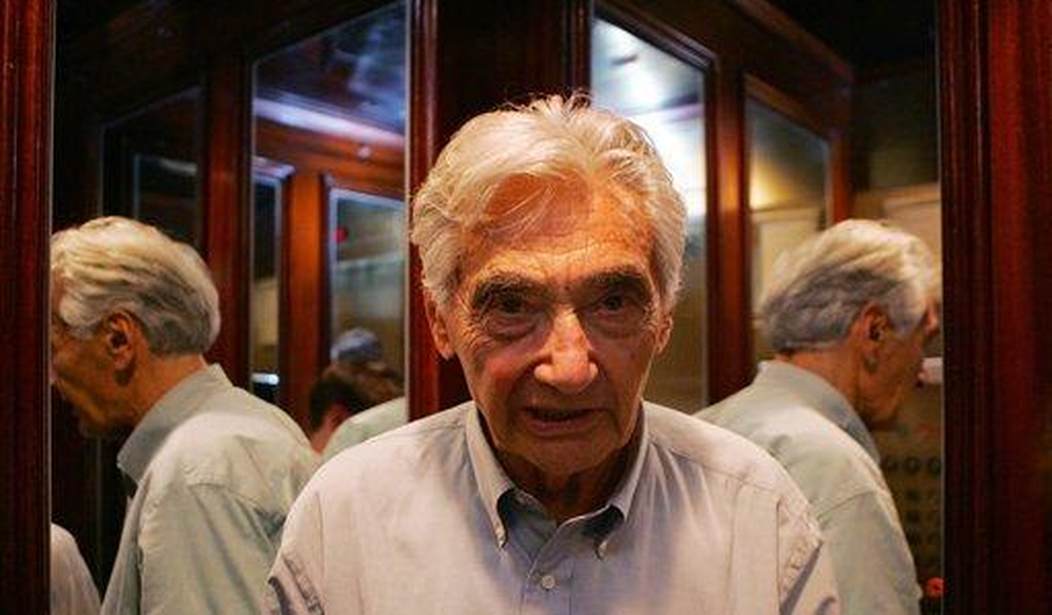It’s come to this. The book Philadelphia council members have already voted to include in their curriculum is -- you guessed it -- Howard Zinn’s “A People’s History of the United States.”
From the Washington Times:
City council members in Philadelphia have given the go-ahead to a resolution to allow a socialist historian’s view of America, via his “A People’s History of the United States,” to be part of the public high school curriculum.
The book, by Howard Zinn, looks at American history through the lens of the working people, and of women and minorities, and tracks the various social movements — including the advent of labor unions — that have shaped government reform and policy.
The resolution passed by the local governing body stipulates that the book “emphasizes” the role of these segments of society, “not simply the version retold by those powerful enough to ensure history remembers their actions in a positive light, regardless of the truth,” The Daily Caller reported.
The problem? The book is not a serious work of scholarship, as the editors of National Review Online pointed out last summer:
Mitch Daniels, whom some Republicans would like to see president of something more than Purdue University, is under attack because as governor of Indiana he objected to the use of Howard Zinn’s A People’s History of the United States in public-school curricula. In recently published e-mails, the plainspoken Governor Daniels described Zinn’s work as “anti-American” and “crap,” which, when expressed in sufficiently polite language, is the professional consensus: “a polemicist, not a historian,” says Arthur Schlesinger; his work a “deranged” “fairy tale,” says Harvard’s Oscar Handlin; a man who traded in “every left-wing cliché with which the academy has abetted its sense of election these past several decades,” says Roger Kimball.
The book is full of errors and deliberate distortions, as Handlin noted in The American Scholar, and these are not limited to minor issues. Zinn misrepresents everything from slavery in the Chesapeake colonies to American involvement in Cuba to the Tet offensive. He reports as fact the story of Polly Baker, a woman persecuted for having an illegitimate child, when the story is in truth a work of fiction, penned by Benjamin Franklin. Zinn himself described A People’s History as “a biased account,” that bias being in favor of socialism, a political tendency that Zinn favored and thought would be popular but for the fact that “the Soviet Union gave it a bad name.” Mao Zedong and Fidel Castro didn’t help much, either, though Zinn had kind words for their revolutions. Zinn denied being a member of the Communist party, though he was identified as such by several other members and served as an officer in a CPUSA front group. Presented with evidence (including a confession) that Soviet spies Zinn had defended were in fact guilty as charged, his response was: “To me, it didn’t matter whether they were guilty or not.” Later in life, he trafficked in 9/11 conspiracy theories.
Zinn’s book is as notable for what it excludes as it is for its distortions. It is a history of the United States in which there is no Gettysburg address, no Wright brothers, no moon landing, no D-Day landing at Normandy. The thought of Joan Baez receives more prominent attention than does that of Alexander Hamilton.
Recommended
This isn’t to say that students should be barred from reading Howard Zinn’s magnum opus if they so wish. Teachers, after all, have no right to tell students what they can and cannot read outside the classroom. But there’s a difference between teaching the book (as an intellectually honest work of scholarship, mind you) during school hours and on school grounds -- and a student reading the book, say, in his or her free time.
The good news is that the superintendent and the school board must both approve the new curriculum before it’s implemented. So I’m hopeful educators will exercise better judgment than their city council counterparts. If anything, inculcating high school students with anti-American works of propaganda undermines the very purpose of studying U.S. history in the first place -- which, of course, is first and foremost to foster an appreciation for one’s country and its democratic institutions. Thus I see no tangible benefits in teaching this socialist screed to teenagers, especially when there are plenty of other good books to pick and choose from.
























Join the conversation as a VIP Member